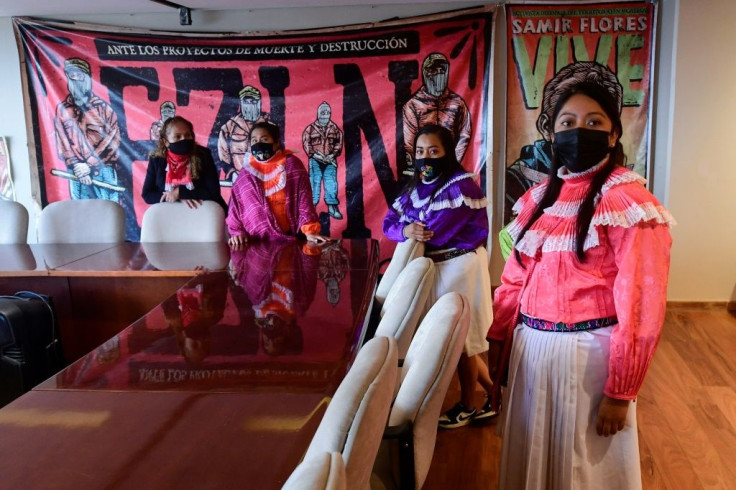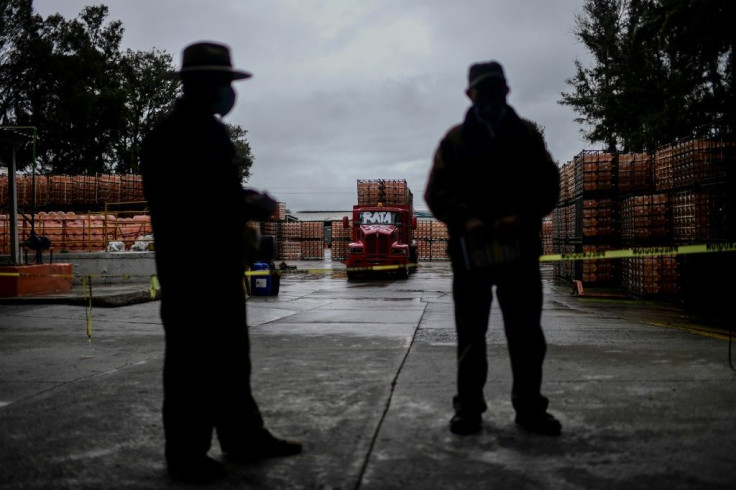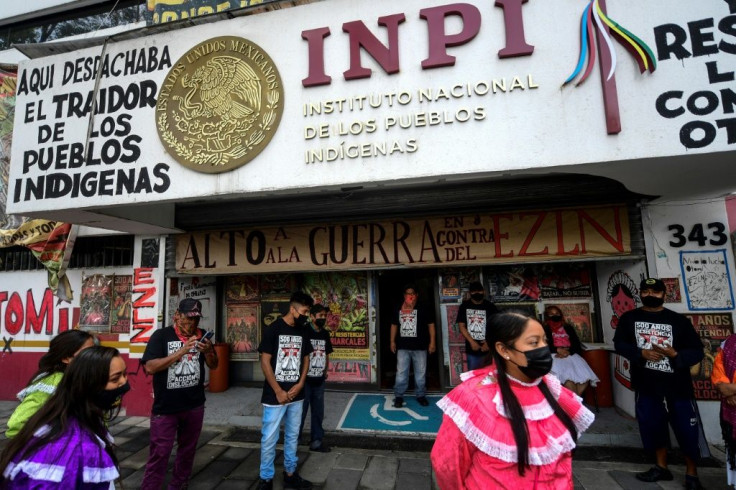Indigenous Mexicans Find Little Cheer In Independence Bicentennial
Two centuries after their country won independence from Spain, indigenous Mexicans like Fidel Flores say that poverty, marginalization and territorial disputes mean there is little reason for them to celebrate.
Some even say that indigenous Mexicans suffer more today than during colonial times.
In the central state of Puebla, Flores and hundreds of indigenous Nahua residents last month took over a well operated by a foreign-owned bottling company they accuse of overexploitation.
The water coming up from the ground in the shadow of the majestic Iztaccihuatl and Popocatepetl volcanoes "is a divine gift" and not the property of a private firm, said the 74-year-old.

"Whoever tries to profit from the water will receive the punishment of the people!" a banner warns at the site, where protesters have put up barricades using car tires.
Flores said that before the "peaceful seizure" of the spring, the residents reported the case to the authorities because other wells were drying up, but they were ignored.
"We're suffering more than in colonial times," because at least then indigenous people did not have to fight to protect natural resources, he said.
Bottling company Bonafont, owned by the French group Danone, told AFP that the well's operation was not connected to the surface water sources used by the community.

Nearly 70 percent -- 8.4 million -- of Mexico's indigenous people live in poverty, and 28 percent are in extreme poverty, according to the National Council for the Evaluation of Social Development Policy.
That is far above the figure for the non-indigenous population, 39 percent of which lives below the poverty line and around five percent in extreme poverty, in a country of 126 million.
President Andres Manuel Lopez Obrador, who took office in 2018 with an indigenous ceremony, has apologized for historical wrongs and emphasizes that states with large indigenous populations receive more social investment than many others.

But some communities complain that their situation has worsened due to the president's mega infrastructure projects like the Tren Maya rail link through the Yucatan Peninsula.
"It will destroy the environment, but the president is determined. Our opinion doesn't matter to him," said indigenous activist Pedro Uc.
"All this talk of ending marginalization of the indigenous people is still just talk" because the people still face "poverty, marginalization, racism and contempt," he said.
Uc, who has received anonymous death threats in the past, is adamant that his people have "nothing to celebrate" during the government's bicentennial events this month.
Lopez Obrador has asked Spain and the Catholic Church to apologize for the abuses committed during the conquest and evangelization.
But the president's rhetoric "contradicts his search for economic development in conventional capitalist terms," said Federico Navarrete, an expert in indigenous issues at the National Autonomous University of Mexico.
After the armed uprising of the Zapatista guerrillas in the impoverished southern state of Chiapas in 1994 to fight for more rights, reforms allowed the creation of autonomous indigenous governments.
However, rights such as access to education in indigenous languages are still not recognized in some parts of the country.
To make themselves heard, hundreds of families from the Otomi community in need of housing have occupied the National Institute of Indigenous Peoples building in Mexico City for nearly a year ago.
The bureaucrats' cubicles now serve as dormitories, a tortilla oven has been set up in the parking lot and a handicraft workshop has been installed.
"The government has never wanted to listen to us," said 54-year-old Isabel Valencia from the town of Amealco in the central state of Queretaro.
No government spokesperson responded to AFP's requests for an interview about the matter.
"There have been years of waiting and knocking on their doors while they pretend to listen to us," Valencia said.
© Copyright AFP {{Year}}. All rights reserved.





















